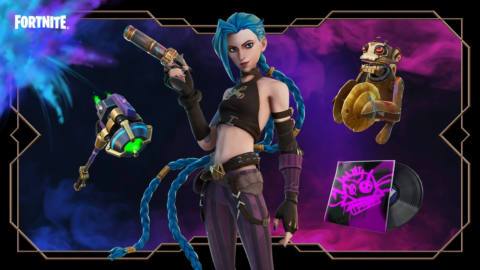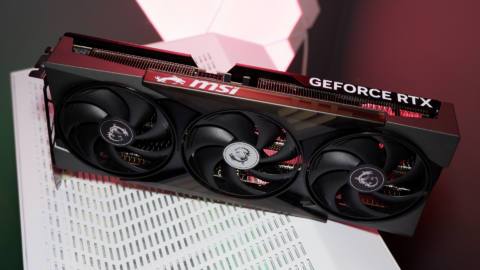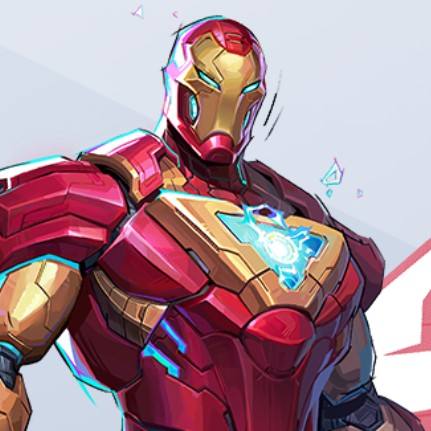In a talk at last week's Game Developers Conference in San Francisco, Firaxis game director Joe Weinhoffer broke down the evolution of Marvel's Midnight Suns' tactical combat and explained the thinking behind the game's most polarizing element: using cards to represent superhero powers.
“Is it odd that we have cards in a tactical superhero game? Yes, absolutely,” Weinhoffer said early in the talk. “We knew this would be a controversial choice, and that reception and first impressions would be mixed. We certainly had plenty of people see the game and say 'oh, it has cards in it? Eh, nevermind, not for me.' But was it the right fit for this game and our design goals? Yes, absolutely.”
We ended up loving Midnight Suns, awarding it runner-up to the 2022 GOTY. But back when it was announced in 2021, the marriage of deckbuilder and XCOM didn't go over so well at first blush. Maybe that was because strategy fans have been waiting so long for a full-on XCOM 2 sequel; maybe it was just the result of general card fatigue, since deckbuilders have flooded Steam in the years since Slay the Spire. Those same concerns may have also contributed to Midnight Suns' weak sales, but Weinhoffer's GDC talk is a point-by-point justification for every design decision the team made to arrive at their final combat system and easily convinced me that cards were the right way to go.
Firaxis started with XCOM 2's combat as the rough basis for Midnight Suns, but quickly decided huge elements of it would have to be changed. “Long story short, Marvel approached us—they loved XCOM 2 and asked if we'd be interested in making a squad-based tactics game using the Marvel superheroes,” he said. After toying with the idea of an Agents of SHIELD game, Firaxis decided it wouldn't be as fun to see characters like Spider-man pop up in the game every once in a while; players would want to control the heroes themselves. And if your squad is made up of superheroes and not flesh and blood normies, most of XCOM's mechanics—permadeath, fragile soldiers, RNG accuracy—just wouldn't work.
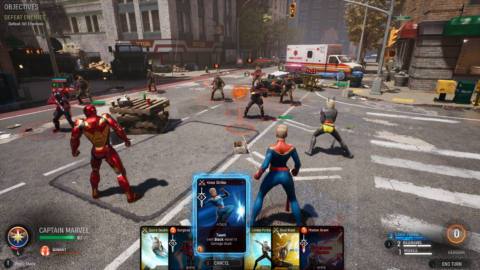
“The heroes needed to be the focus of this game. Keeping that goal in mind led us to establish our core foundational pillar: Feel heroic. We want the player to feel like a superhero in every possible moment, and this goal should drive every decision we make about what to put into the game.”
That superhero power fantasy informed some big decisions:
- Superheroes shouldn’t have to take cover
- Superheroes shouldn’t miss their attacks
- Superheroes shouldn’t have limited movement ranges
“We knew that this was risky—we had just removed essentially all of the mechanics which make XCOM an interesting tactics game,” Weinhoffer said. The rest of the talk focused on how Firaxis “built that interest back in while still holding onto that 'feel heroic' pillar.”
The team's first attempt to reintroduce some of XCOM's exciting randomness was a counter system: there was a percentage chance that enemies would counter your superheroes when attacked, cutting your turn short. Despite many permutations of this idea, it never worked well—it simply discouraged players from attacking the enemies they were there to fight. It introduced an element of surprise, but no interesting strategy, and thus not very heroic.
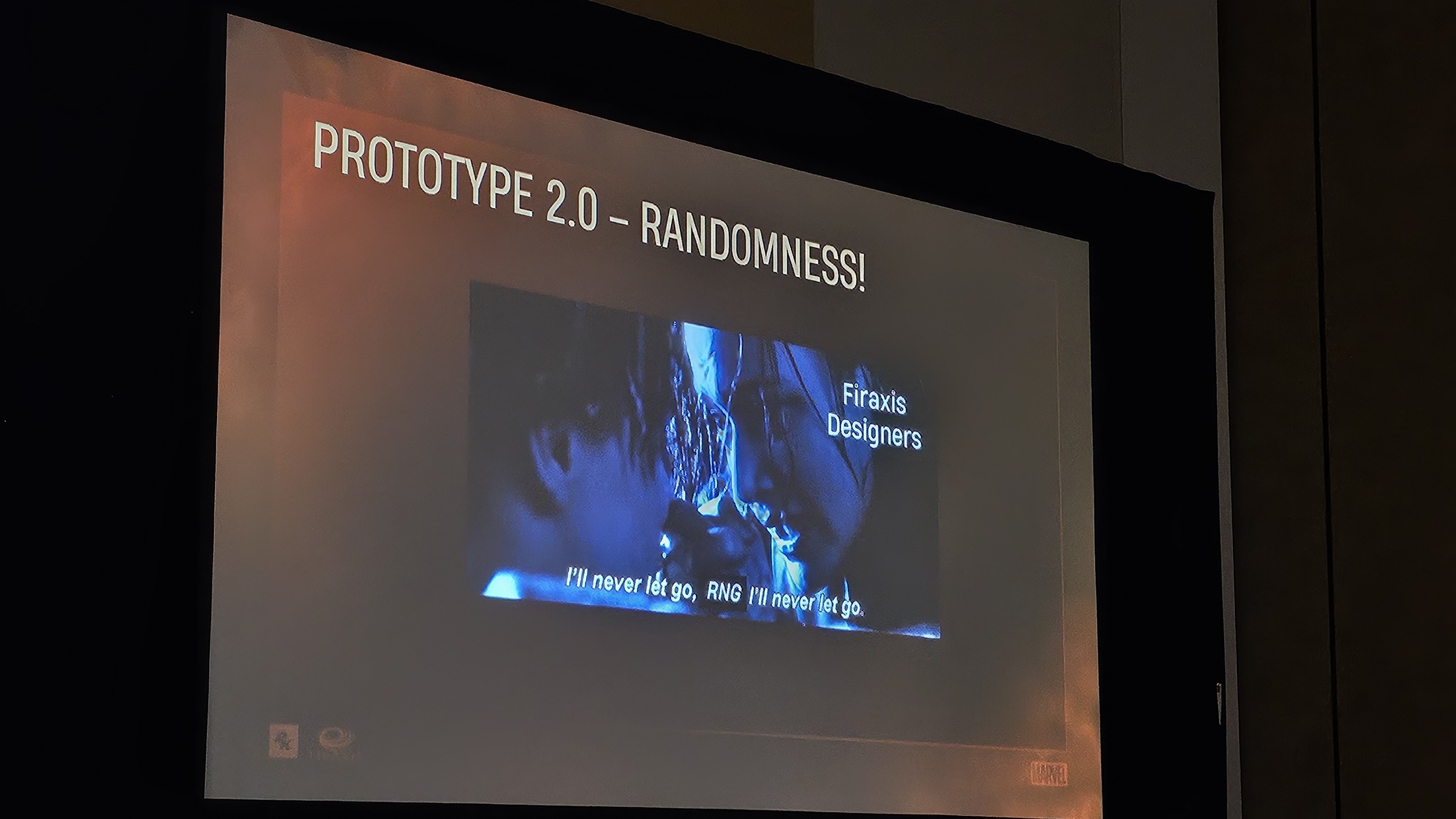
“We knew we wanted to have predictable outcomes in Midnight Suns, with heroes guaranteed a chance to land their attacks. So what happens if we move the randomness to the actions they have available instead? That sounds familiar…”
The solution, of course, was a card system. “We didn't need to explain what a card is, saving us a lot of time on tutorials, and those foundational concepts can then be more easily manipulated with other game rules or mechanics,” he said. “Compared to previous prototypes, the availability of the player's actions every turn is now unpredictable, but the outcomes are still defined and there aren't as many bursts of surprise… Turn-to-turn gameplay is also now less repetitive because of the random card draw.”
Weinhoffer noted that the system wouldn't work in XCOM, where what you can do each turn is consistent, but the outcome of your actions is unpredictable, “which matches the struggle inherent in that game.” By contrast, “heroes always succeeding in their actions is critical to feeling heroic. So we randomize what they can do each turn instead.”
“Using the predictable outcomes in gameplay encapsulation of the cards gave us exactly the feeling that we wanted, being heroic in combat, while still giving us enough randomness turn over turn for strategic planning, and a large enough gameplay design space to create interesting abilities for every hero.”
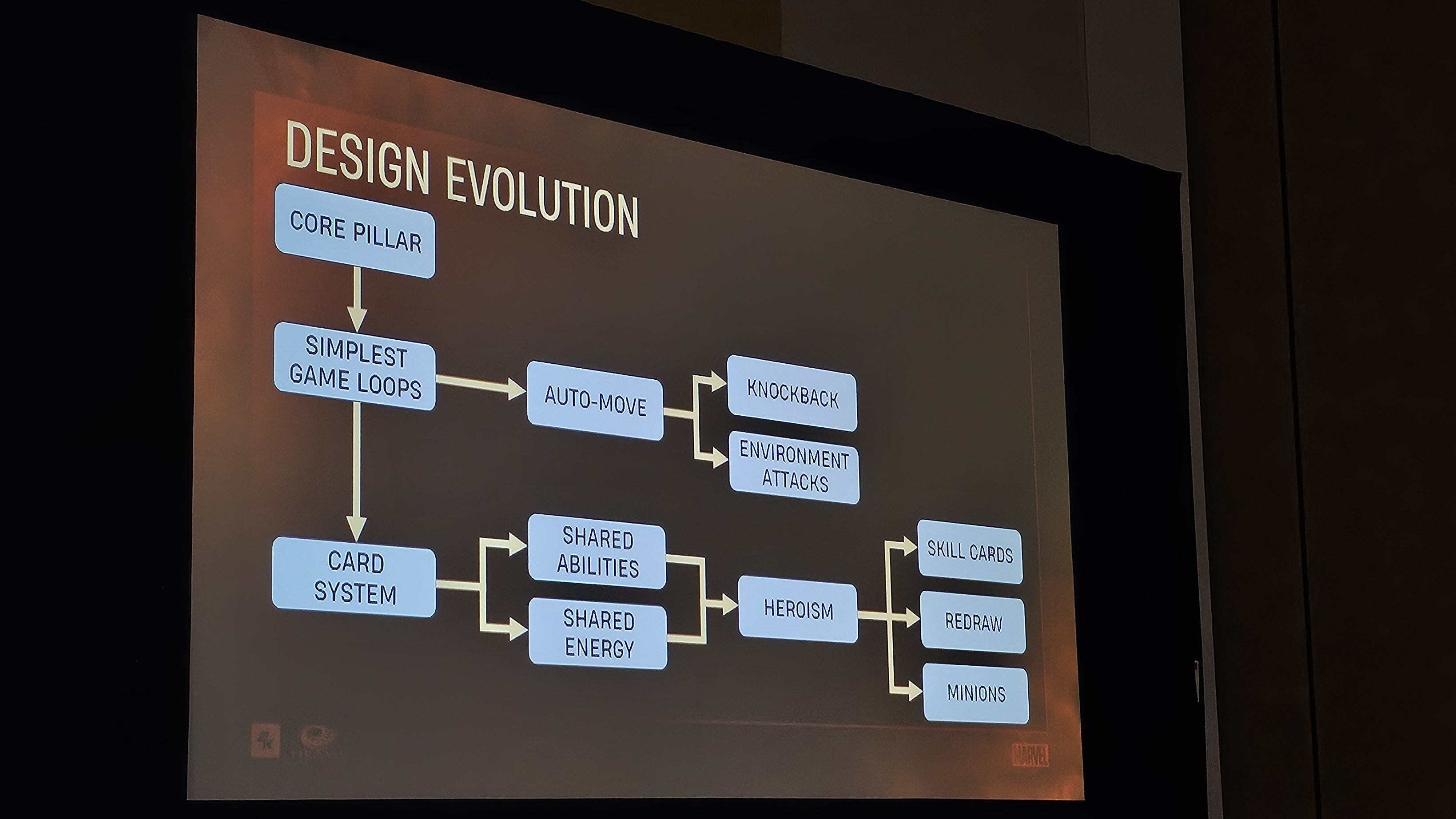
The decision to give heroes so much freedom of movement in combat led to Midnight Suns' knockback and environmental attacks, which make positioning significant in the absence of a cover system. But the cards left one other big problem to solve, which was how to handle resource management and ability costs. Should heroes have unique abilities, or draw from a general pool? Should each individual character have their own energy reserve, or should the player have one big pool of energy for the whole squad to pull from?
Giving each hero an individual unique deck presented too much overhead; a shared energy pool also presented a “feast or famine” problem where certain heroes would tend to hog all the action. “With a hero like Hulk on the board, who deals more damage than any other character, it was very easy for him to be the default to use every action since he was simply more powerful,” Weinhoffer said. “And that's not good. We want the heroes to feel like a team, and give everyone a chance to shine in combat.”
In the end they settled on a shared energy pool, simplifying your decision-making every turn, with the abilities available turn-by-turn decided by the randomness of the card draw. Though some heroes may go a turn without a good card to play, that was mitigated by options like environment attacks, so they rarely ever felt useless. Energy costs posed a different problem in Midnight Suns than in typical deckbuilders: they wanted to keep the number of strategic options each turn fairly low and didn't want hero decks to be bloated with huge numbers of cards, so they couldn't scale up card costs or the player's energy pool over time. Paradoxically, to avoid making the card system too complex they added a secondary resource to play cards.
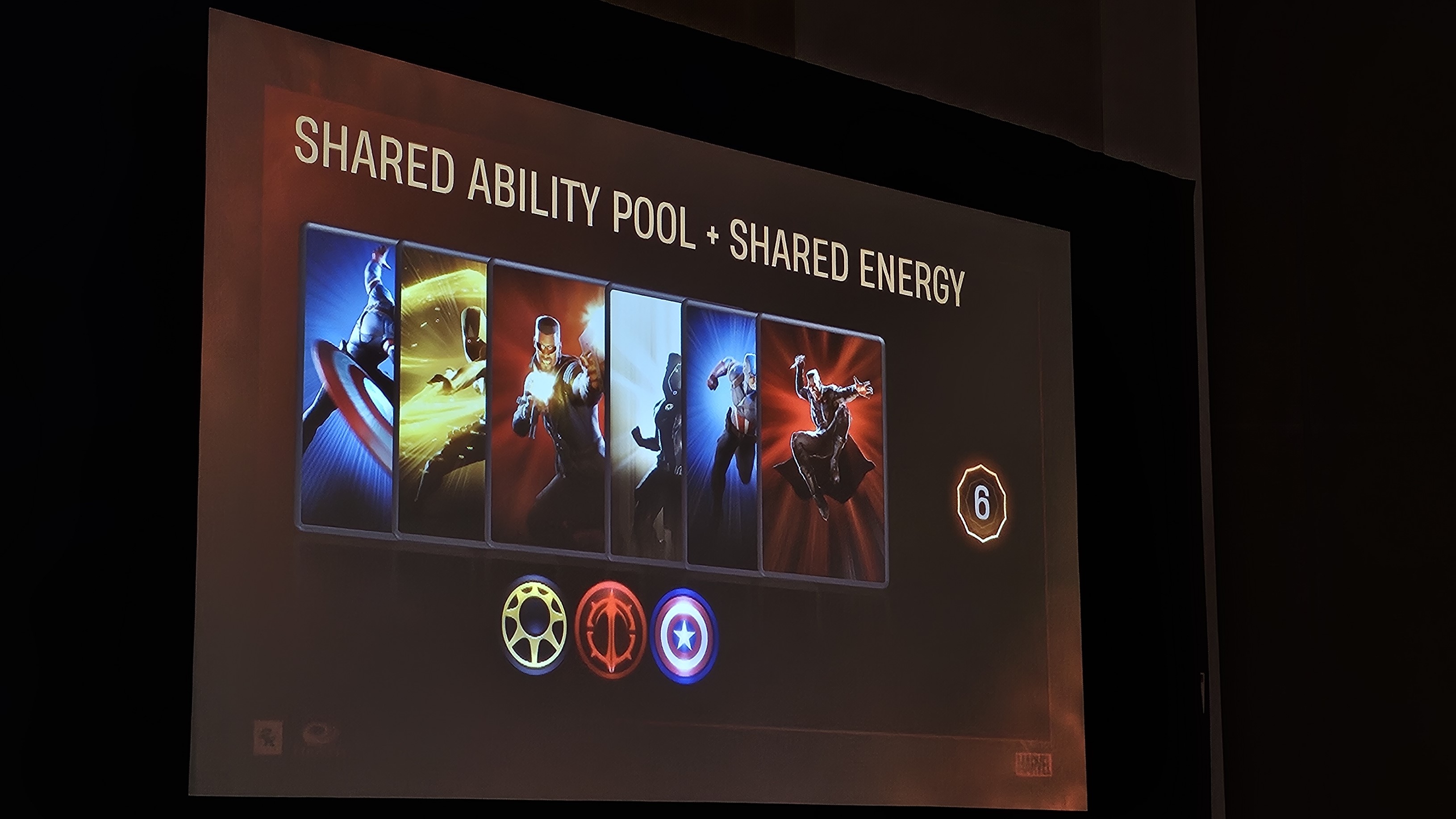
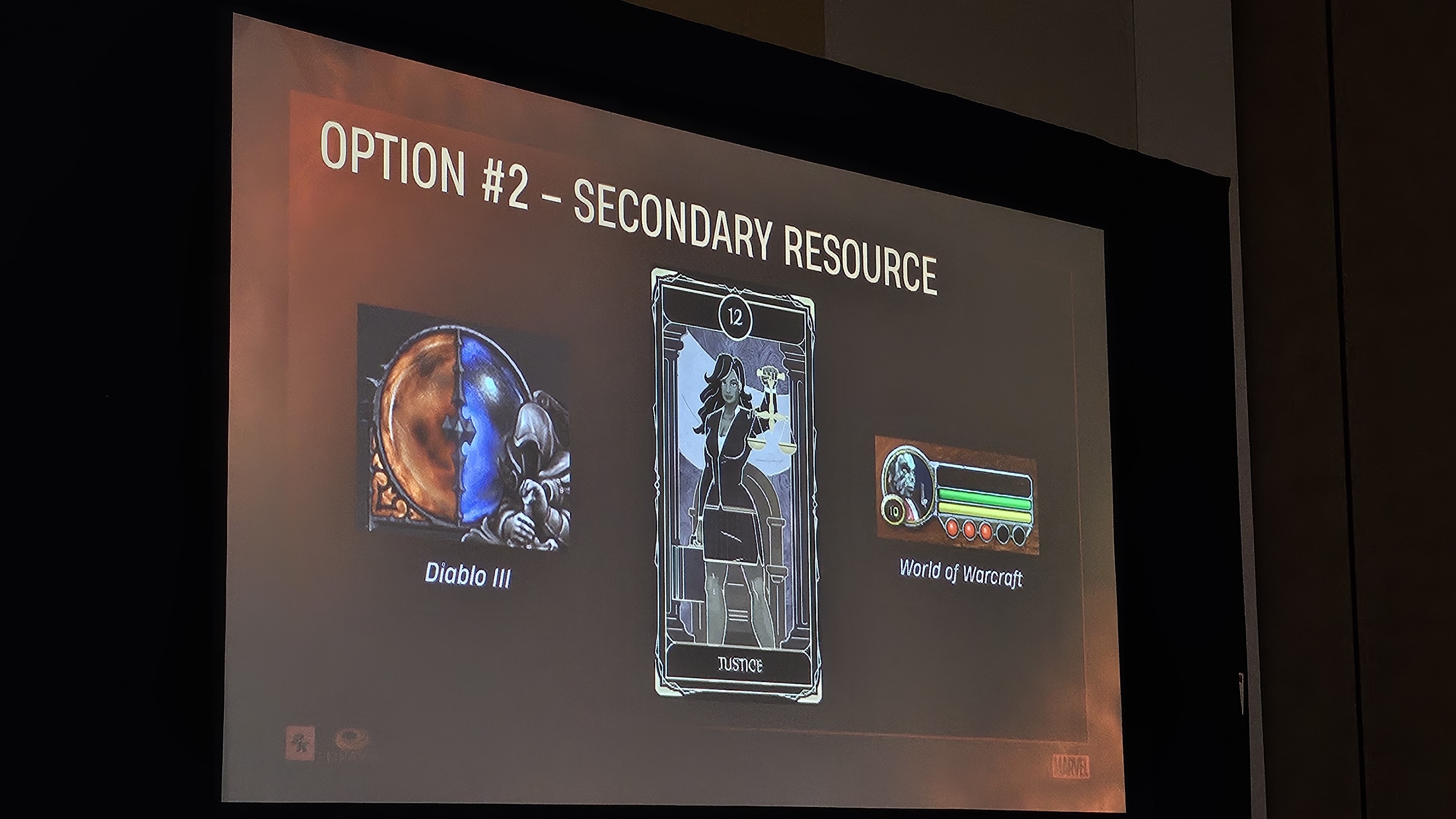
“After testing a secondary resource which we called 'herorim,' we really liked the flexibility that it gave us,” he said. “We could have some cards generate heroism and others could spend it. That gave us some great resource knobs to turn in balancing cards. A card could either regenerate or cost more or less heroism. In fact, we felt so good about what heroism as a secondary resource gave us as a mechanic that we decided to look back at energy to reduce complexity there to compensate for it. In the final game, energy does not exist in any cards in Midnight Suns. It's not visible. Our primary resource is called 'card plays.' It explicitly indicates the number of cards which can be played from the hand each turn, and every card implicitly costs one card play. That's it—nice and simple.”
The heroism system also provided a helpful way to boost the value of “skill” cards vs. “attack” cards, pushing players to use more interesting abilities more often instead of always falling back on straightforward attacks.
If you ever wondered if randomness in Firaxis's games is truly random, Weinhoffer ended the talk with one last tidbit for you. To prevent players from ending up with a hand full of cards that cost heroism but couldn't generate it, they added a redraw ability and “did some massaging under the hood to ensure that if the entire hand of cards could not be played, redraw was guaranteed to draw a card which can be played, even if it wasn't technically at the top of the deck.”
“In edge cases like this, we found it acceptable to subtly tweak the rules to ensure a positive player experience, getting them unstuck from a really negative, frustrating situation,” he said. “Bend the rules to avoid the worst possible outcomes and edge cases—just do it in a way that is subtle and invisible to players. If you're debating breaking the rules or leaving a really frustrating situation in the game which may cause players to ragequit? Break the rules. Games are full of these subtle, soft nudges to ensure that players have a good time. Even in a strategy or tactics game that runs on a really strict ruleset, the ultimate goal at the end of the day for everything we do is to ensure that our players are having fun.”

